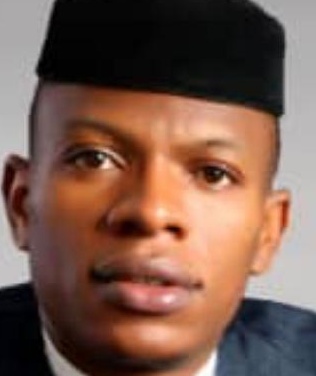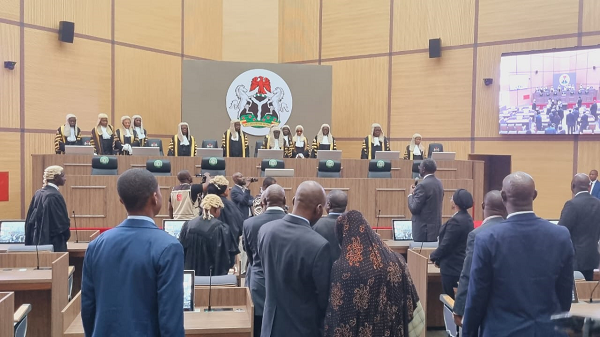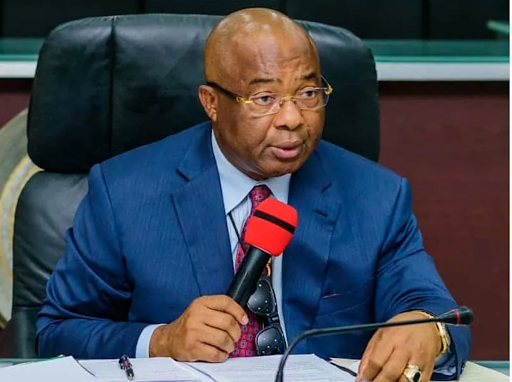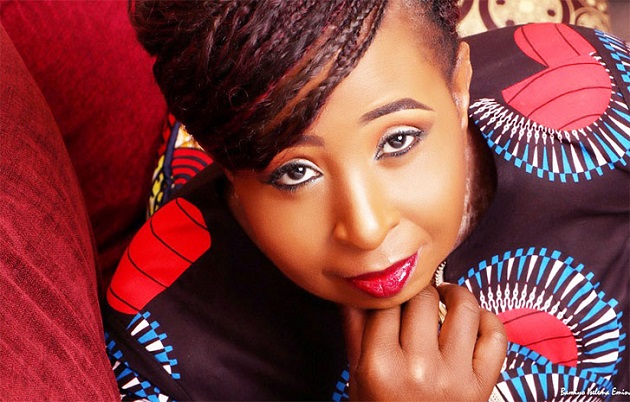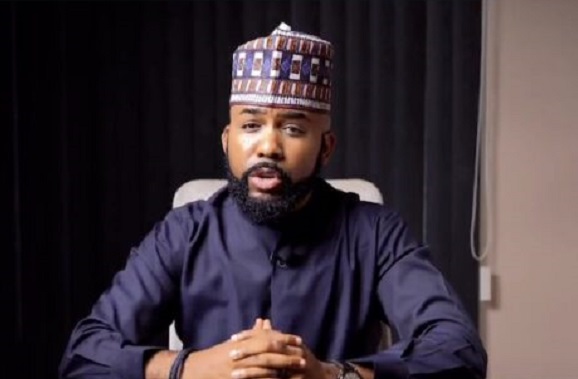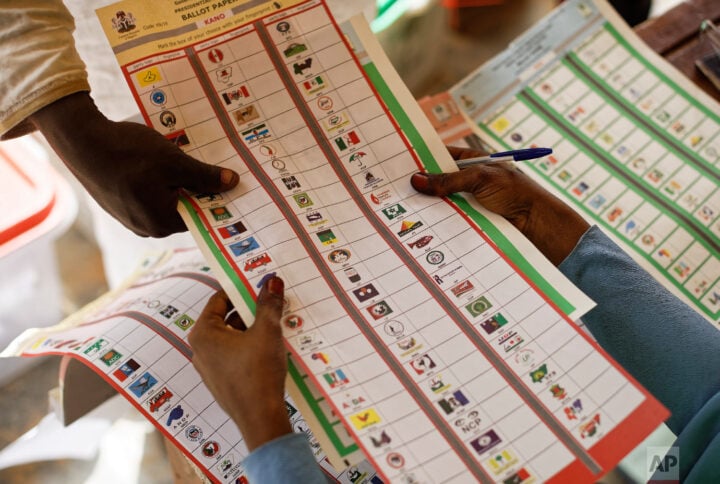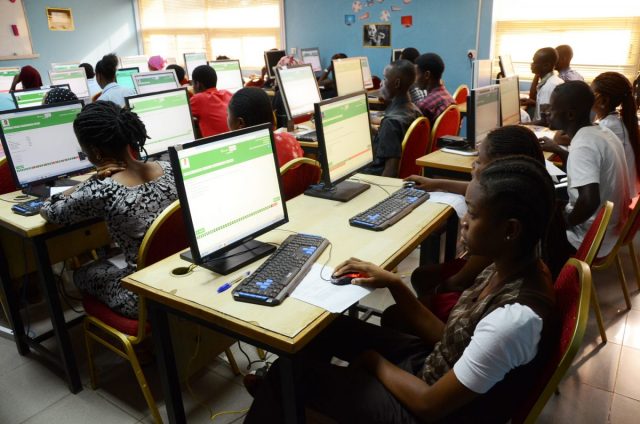The supreme court
One of the unintended consequences of the zero-sum nature of Nigeria’s politics and the historical electoral heist that has characterized electioneering in Nigeria is the foray of the judiciary into the murky waters of politics. But perhaps it is meet to point out here that this phenomenon is not peculiar to Nigeria.
As democracy and society continues to evolve, the judiciary has had increasing intervention in the political arena. There is perhaps a no better illustration of this than the manner in which the last general election in the United States of America was litigated owning to the notion held by former president, Donald Trump, that the election that sacked him from power was stolen by the Democrats. Recent elections in Kenya, Ghana, and elsewhere have also been staunchly litigated by the losing parties. The only difference however relative to the Nigerian situation is in the rather expeditious and complimentary manner in which these cases have been conducted resulting in the consolidation and strengthening of the democracies of the respective states.
The situation back home however does not leave a similar taste in the mouth. The general impression by many Nigerians is that the judiciary has failed on several occasions to deploy its very enormous powers in a manner that serves to consolidate Nigeria’s democracy. A ruling of the Supreme Court of Nigeria, three years ago, which returned a candidate that came fourth on the ballot as the duly elected Governor of a State in the South East against all rules of arithmetic and disregard of the electoral formula, has often been referenced as a key exhibit in this regard.
Incidentally, the Nigerian political clock has had its full orbit, and we are again at the cusp of another general election. The question is, what does this mean for the judiciary?
Advertisement
In the interval between the last general election and the imminent 2023 polls, the Electoral Act – a major legislation at the heart of Nigeria’s electoral jurisprudence has been amended with some radical innovations some of which have not received juridical introspection.
Whereas it was thought that the amendment to the Act would reduce the incidence of political cases given the level of transparency and accountability structures introduced in the pre and post-electoral processes, the experience from the concluded primary elections across the 18 political parties registered by the electoral body – INEC suggest otherwise. While the electoral framework has been commendably amended, our political actors remain stuck in their bad behavior of compromising laid-down rules and guidelines. For this reason, an already overworked judiciary has had to be called into the fray at the cost of other matters bordering on the economic livelihoods of individuals and businesses whose cases would have to wait until these political cases are determined to a finality.
Last September, the Chief Judge of the Federal High Court- the sole court with exclusive jurisdiction over pre-election matters as per the 2022 amendment to the Electoral Act, had to set up a special panel of judges to attend to cases emanating from the primary elections of political parties. These cases have kept a good many officers of that Court thoroughly engaged and considering that almost all of these cases find their way to the Apex Court, our appellate judges have not been spared the onslaught. But that is not all.
Advertisement
As Nigerians prepare to go to the polls, the judiciary is also gearing up to attend to the cases that would most likely emanate from the elections. As has become our misfortune, in Nigeria preparing for an election also means preparing for election petitions. Thus, one of the first official acts of the newly sworn Chief Justice of Nigeria -the Hon. Mr. Justice Olukayode Ariwola was the constitution and swearing-in of over 300 judges that would be serving on different panels of election petition tribunals to adjudicate disputes expected to arise from the February and March 2023 elections.
In his remarks at the engagement, the CJN took the opportunity to admonish the judicial officers on the need to undertake the assignment with a great sense of responsibility and fidelity to their judicial oath of neutrality and fairness. “I will not condone any act of recklessness, abuse of power and public trust“, he warned.
Perhaps in recognition of the critical role court registrars and Secretariat of election petition tribunals play in the justice-delivery value chain, the workshop organized yesterday, by the President of the Court of Appeal (PCA)- the Hon. Justice Monica Dongban- Mensem for Court registrars who will be serving at the various election petition tribunals is very instructive. During the event, the Head of the nation’s penultimate Court warned the registrars not to see the task as an “opportunity to make money to enrich yourselves” as “the court will not hesitate to deal with anyone found wanting in this regard.”
The separate admonitions of the CJN and PCA respectively to the judicial and non-judicial staff of the election petition tribunals are not totally without context. Indeed, they were being made against the backdrop of an ugly history which has altogether served to undermine the perception of the Nigerian judiciary.
Advertisement
Election petition tribunals are seen as a cash cow of sorts; an opportunity for quick money by all the major players involved in it: the lawyers, the judges and the court registrars. As one who has had the privilege of being actively involved in some of the most contentious electoral contests in our recent history, I should know.
This periodic bazaar of sorts has also left in its wake a long list of victims, especially among lawyers and judges who have been caught pants down perverting the cause of justice. On one occasion a judge of an election petition tribunal was alleged to have been engaged in intimate telephone exchanges over the case he was handling with a Senior Advocate of Nigeria (SAN), representing one of the parties in whose favour the tribunal eventually decided. These allegations eventually ended up before the National Judicial Council (NJC) in a petition against the judge. At the end of the investigations, the NJC found that he had violated his judicial oath in his dalliance with the SAN and terminated his judicial career.
Separately, the Legal Practitioners Disciplinary Committee (LPDC) took up a complaint against the SAN for violation of the Rules of Professional Conduct (RPC) in the legal profession. On May 21, 2015, the LPDC found him guilty of multiple violations of the RPC and disbarred him. He would later regain his Silk after an appeal at the Supreme Court which quashed the findings of the LPDC on a rather technical ground as the Court has become accustomed. The above instance, is one, out of many other cases.
It is thus within the above context that the separate admonitions of the top two courts in the land should be situated. After the experience of 2019 where certain decisions that emanated from the judiciary over election cases in some respects undermined the concept of democracy itself by foisting unpopular candidates on some electorates, the judiciary this time must seize this fresh opportunity as a course-correcting exercise.
Advertisement
To be able to do so, it must approach the cases that would become before it from a legal cum moral prism that shuts every door of technicalities in order to render judgments that are not only sound in law, but also in tune with the popular sentiment of the electorates. Election petitions it is said are sui generis: however, it would appear that the application of this principle has only taken a stultifying construct that only suffices in the adoption of arcane rules of technicalities that deliver justice ‘without a human face’, as Justice Chukwudifu Oputa (of blessed memory) might have put it. To this end, an expansionist application of the new innovations in the Amended Electoral Act some of which would fall for judicial interpretation for the first time should be considered.
In an election year that has witnessed an unprecedented surge in civic interest and participation, especially from the Nigerian Youth, the judiciary must put its best foot in front of it must live up to its cherished banner as the last hope of the common man.
Advertisement
In all, it is submitted that the outlook for the judiciary in 2023 is a tricky one. To be sure, there have been moments in our history when the judiciary distinguished itself as a bastion of our democracy and cherished rule of law principles. Opinions are however bound to be divided as to whether the recent outlook of that institution inspires similar hope at this time. Whatever side of the divide one might identify with, what is however clear is that we might have just come to one of such critical junctures in our history again and the enormous role of the judiciary in shaping it, should not be lost on it.
A lawyer and public interest commentator, Raymond Nkannebe can be reached via [email protected].
Advertisement
